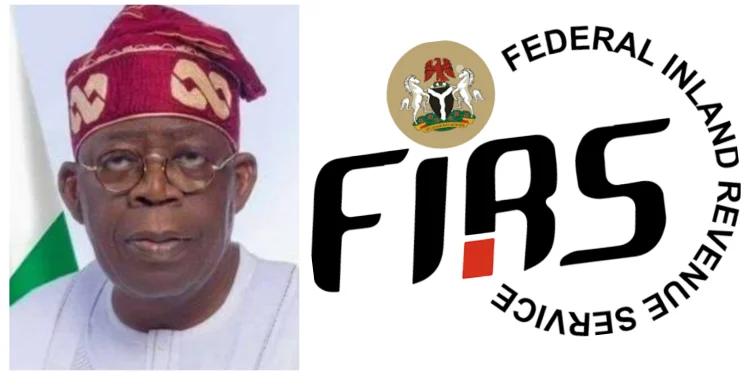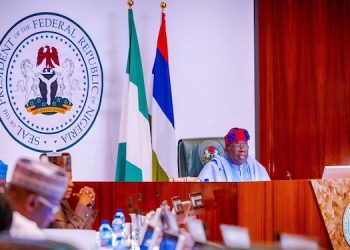As Nigerians, it’s expected that a few subjects could stir debate and controversy; part of this is the new taxation reform.
Nigerian Taxation systems have gone through criticism for being confusing, burdensome, and unfair to the people who struggle the most to make ends meet.
This has been going on for decades.
Meanwhile, with the Newly signed Personal Income Tax (PIT) reform, which is set to take effect in January 2026.
A bold step has been taken towards a fairer, truly progressive, and more transparent system that puts people before revenue targets.
A Progressive Structure That Protects the Poor.
The significant change is the revised tax bands and rates.
Under the new law, Individuals with #800,000 or less will pay 0% tax, which effectively exempts Nigeria’s lowest earners from PIT entirely.
Also, Higher incomes will fall into progressive bands, with tax rates increasing gradually rather than being applied to the entire income.
For example, a salary earner making #3,000,000 annually will not pay tax on the full #3 m. Instead:
The first #800,000 is completely tax-free.
It’s only the remaining #2.2m that will be taxed at 15%, giving a total PIT of #330,000 annually—about #27,500 monthly.
If someone is earning #5 million annually, the tax will be across different bands; 0% for the first #800,000, 15% for the portion up to #3 million, and 18% on the portion above #3m.
This system will make sure that those who earn more, contribute more—while shielding vulnerable households from oppressive tax deductions.
Transparency and Simplification.
More than numbers, the reforms are signed to simplify compliance. With a new Personal Income Tax Calculator available in fiscalreforms.ng.
Nigerians can now estimate their liability and also compare it against the old system.
No longer should taxation feel like a mystery reserved for accountants.
For the first time in history, salary earners can easily see how their contributions are calculated.
Who can file Returns?
The obligation to file remains wide-ranging:
All Nigerians, either Citizens or Residents who are 18 years and above, whether salaried, self-employed, or business owners.
Armed Forces Members earning salaries and allowances
Non-residents with a Nigerian source of income.
This explains the principles that while everyone must be part of nation-building, there must also be fairness that guides the contributions.
Filling Made Easier:
Electronic and Manual Options.
The law also explained how to file:
Manual Filing; taxpayers can walk into any Federal Inland Revenue Service (FIRS), or State Internal Revenue Service (SIRS) office with forms and supporting documents.
Electronic Filing (e-filling):This service in FIRS portals also allows taxpayers to file from anywhere and from their comfort zone.
It is called self-service, only if they have their Tax Identification Number (TIN) and the evidence of their income.
These two approaches cater to both digital-savvy citizens and those in communities where online operations remain a challenge.
Tax Reliefs and Deductions
The reliefs are built into the new framework, which is also important.
Individuals can claim deductions for:
Pension contributions, life insurance premiums, and housing fund contributions.
Relief for people living with disabilities or dependents.
Deductions on investment income, business expenses, and approved charitable donations.
However, this system recognizes the real-life responsibilities.
The reforms acknowledge that taxpayers are not just numbers, they are also people with families, aspirations, and obligations.
Deadline, Compliance, and Penalties.
While ensuring transparency, it also comes with responsibility.
Employed individuals must file their annual returns by March 31 ( 90 days after the tax year ends).
While business owners and self-employed individuals have six months after their accounting year-end.
Failure to comply attracts penalties, starting from fines to interest charges, and in severe cases, legal action will be taken.
These are not meant to punish but to emphasize fairness with taxation must come with compliance and responsibility.
Objections and Disputes
No system is perfect, the tax system is inclusive.
This is why the law guarantees the right to object or appeal against tax assessments.
Taxpayers can engage both the state and federal revenue offices to redress, and when and where necessary consult professionals for guidance.
This is important for building trust in the system.
Withholding Tax and Wider Fiscal Reforms.
The reforms also streamline withholding tax processes by ensuring remittance from source payments.
While this Focuses on PIT, it’s part of a broader fiscal reform agenda that includes corporate tax adjustment and revenue transparency.
Editorial Stand: Why This Reform Matters.
For a long time, the Nigerian tax system has been a blunt tool, collecting indiscriminately, by leaving the poor breathing heavily under the weight they shouldn’t bear.
But with these new reforms, we see a shift towards simplicity, equity, and progressivity.
These reforms do not include individuals with low income, also with easy filing and digital transparency.
It shows that the government is not just collecting taxes, but it also builds trust.
In clear terms, those with less income will no longer carry the heaviest loads.
Implementation and execution will be the true test, no matter how well a law is written, it can only succeed if the agencies execute it faithfully and the citizens comply responsibly.
Inefficiency, corruption and lack of awareness can be a threat, this is why civic education, professional tax advisory, and accounting enforcement must remain as the heart of this reform
There should be a proper awareness and tax education for the potential taxpayers, and also campaign to keep them on their feet
A Call to Action to Every Nigerians
Nigerians, whether a salary worker in Lagos, a shop owner in Kano or a teacher in Enugu, must see taxation not as a punishment but as partnership.
Government must also uphold its ends by using these revenues adequately and responsibly.
As the collection of the tax will be transparent, the usage of it should also be transparent and visible, to deliver infrastructure, education, health, and jobs.
Citizens, in turn, must file for honesty and demand accountability.
In all fairness and truth, a fair tax system is the backbone of a fair society.
With this reform, Nigeria has an opportunity to move closer to the ideal.
The choice for us to take it simple, just as we do when we visit those developed countries.
We should embrace compliance, pay the tax as at when due, demand accountability.
Together, we can build an enviable economy where taxation will not be a center topic, but growth, where taxation is not oppression but a pathway to equity






